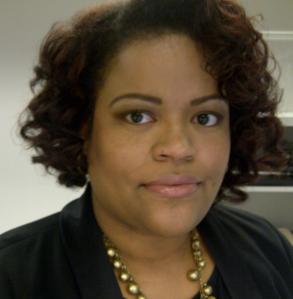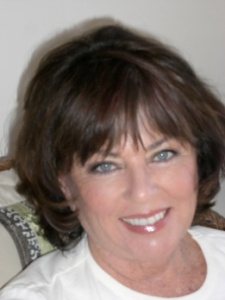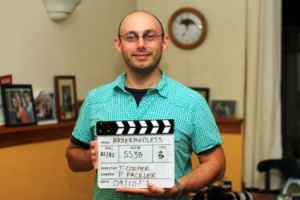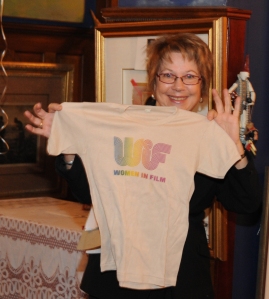Author: Yolanda R. Arrington, WIFV Board
Sunday night, millions were locked in for the 85th Annual Academy Awards, hosted by irreverent comedian and writer Seth MacFarlane. If you watch any of his work then you know what you’re getting: a guy who pokes fun at everyone. A guy who can amuse and offend everyone in the room, then sing a Sinatra standard with ease. But, Sunday night, viewers were treated to a series of jokes and an unfortunate tweet that lit up the blogosphere and the “Twitterverse.”
I’ve compiled a few Oscar commentaries to put things into context.
The Quvenzhané Wallis Tweet
The Onion fired off what was supposed to be a satirical tweet about young Oscar nominee Quvenzhané Wallis. That tweet contained a highly derogatory term for women and was quickly pulled. The Onion apologized the next morning but it was too late. Bloggers and women’s groups were already on the move, supporting young Quvenzhané. The Crunk Feminist Collective compiled a love letter to the young actress, Black Girl Dangerous penned a blog about being a black girl in the world and a Huffington Post blogger noted how the tweet and MacFarlane’s joke that Wallis has “sixteen years before she’s too old” for George Clooney signaled a loss of innocence for the young actress and our culture, in general.
Visual Effects Artists Snubbed
While the Oscar party was happening inside the theatre, visual effects artists were gathering outside on Hollywood Boulevard to protest recent events that have put a strain on their industry. The Hollywood Reporter notes the recent bankruptcy filing and subsequent layoffs at Rhythm & Hues Studios –the same studio that’s responsible for the effects in the Oscar-winning “Life of Pi” – was behind the protest. During his acceptance speech for “Life of Pi’s” visual effects, Bill Westenhofer was drowned out by the band and his microphone cut off just as he was about to address the current situation in the industry. We plan to have more coverage and a deeper look at the visual effects industry in an upcoming blog.
Sexism & Racism At The Oscars
BuzzFeed pointed out nine sexist things that happened during the telecast, including MacFarlane’s song about breasts and a joke about domestic violence Taking a page from BuzzFeed, the Media Action Grassroots Network found at least five instances of racism during the show and listed them on the Organizing Upgrade website.
MacFarlane has said he will not host the Oscars next year. The show pulled in 40.3 million viewers, a million more than last year, so perhaps MacFarlane’s arm can be twisted.
What Can You Do?
Huffington Post blogger Jan Lisa Huttner suggests simple steps you can take to put a positive spin on the negative feedback by supporting women filmmakers, including participating in SWAN Day/Support Women Artists Now Day.
Did you watch the Oscars? Were you amused, entertained or offended? Tell us.
About the Writer: Yolanda R. Arrington, WIFV Board
Yolanda R. Arrington is a digital media producer and full-time social media manager. In her “other” life, she is one of four co-founders of the Witches’ Brew entertainment blog, a 2012 Black Weblog Awards winner. More info available at yolandaarrington.com. To learn more about WIFV DC, go to wifv.org.







